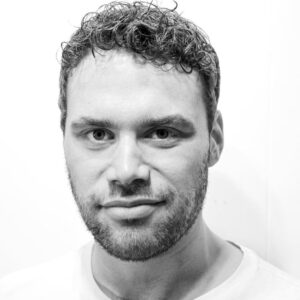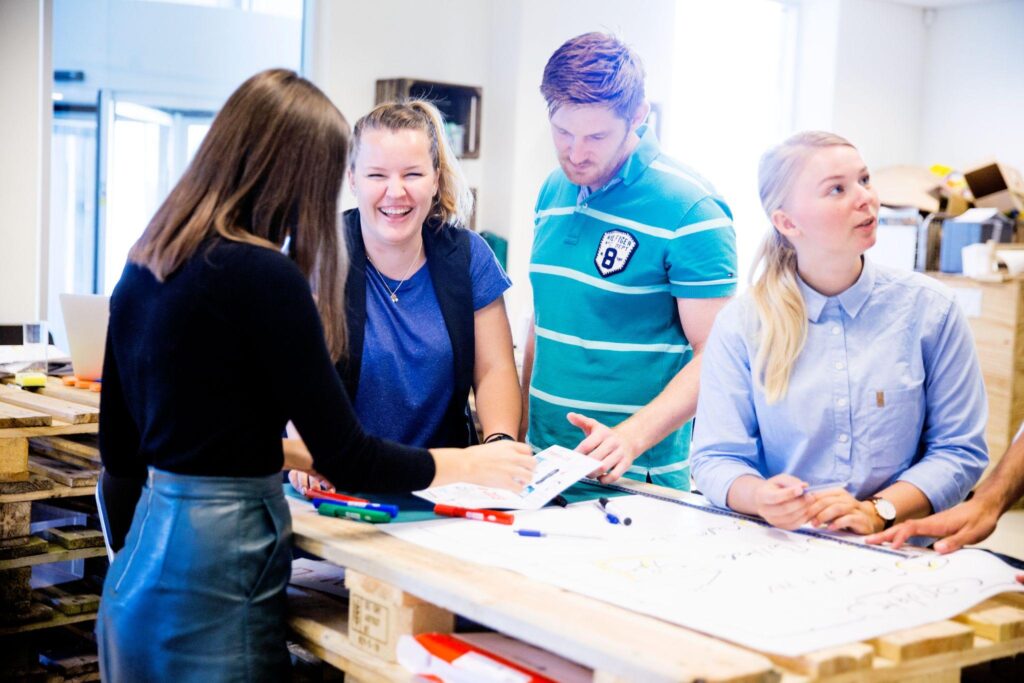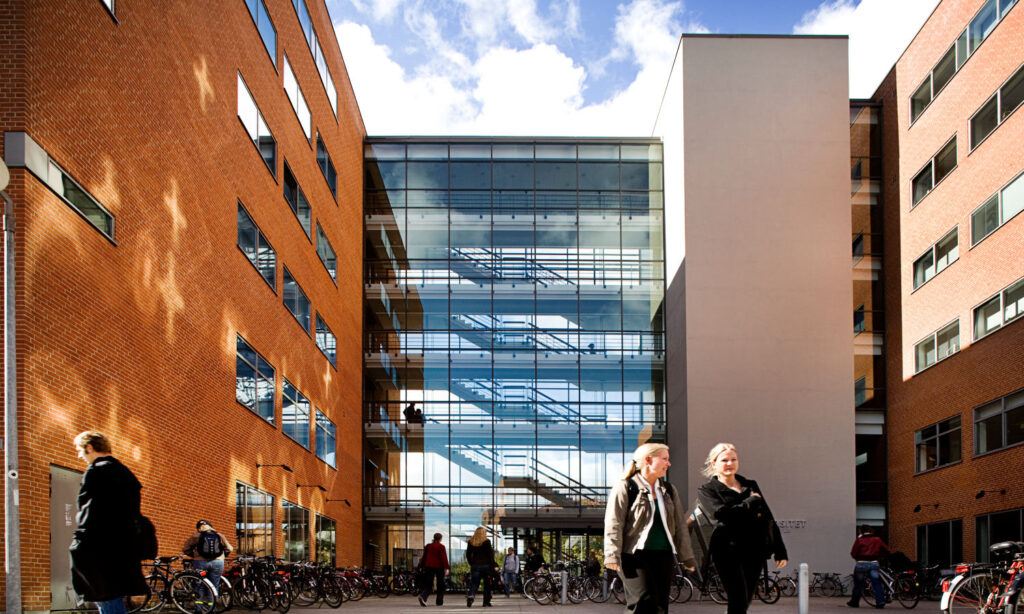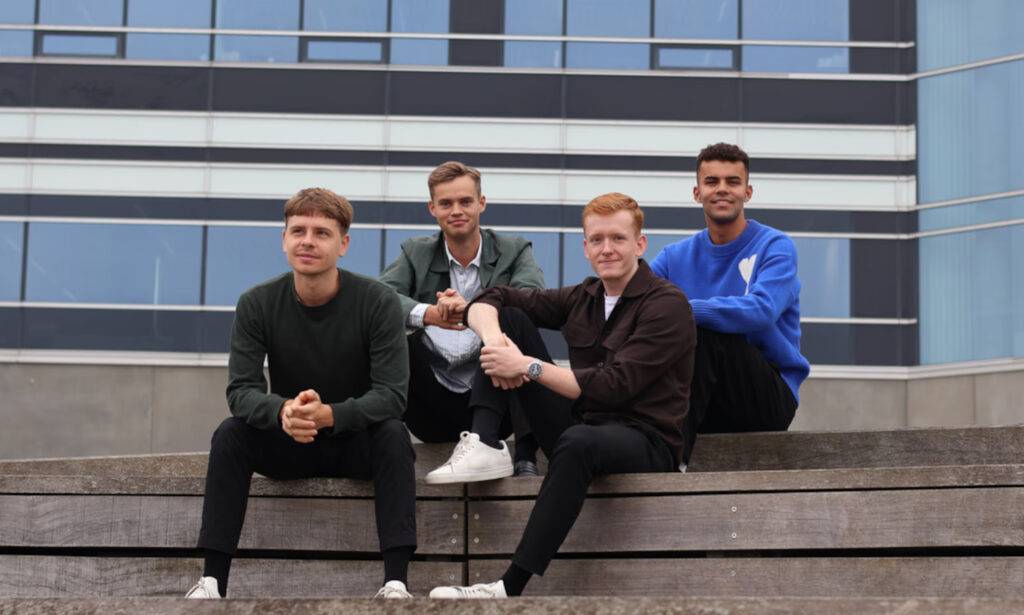This post is also available in: Danish
Marcela Mendoza-Suarez’s journey has been far from straightforward. It started from the vast fields of Mexico, where crop success can determine people’s livelihoods, and encountered an unexpected problem. Not only does the chemical fertilizer used contaminate everything it comes into contact with, but she observed that the fertilizer, which is supposed to nourish the soil and ensure lush harvests, is also uneven in its effectiveness.
“I didn’t understand the biology behind the fertilizer, so I decided to do a PhD. I never really thought about starting a company; I’ve actually always just been driven by the desire to create a better fertilizer that can ensure a better future for food security and the climate. Most often it’s the other way around, where you start from a desire to start a business,” Marcela says with a big smile and adds;
“There are already so many good bacteria in nature that we can already use without having to wait. If you just open your eyes and look around, nature has pretty much all the answers we need.”
Marcela came to Aarhus four years ago after completing her PhD at Oxford University. As it turns out, Aarhus is better suited to taking her research from the lab and into the real world.
From the lab to the real world
The crucial ‘aha’ moment came when Marcela realized that the answer might lie in the microbiological environment of the soil itself.
“It’s hard to find the right bacteria and match them with the right crops, so that’s the problem I wanted to find a solution to.”
Aarhus University proved to be the ideal place for Marela’s research because, unlike Oxford’s research-oriented environment, Aarhus offers a bridge between the lab and the real world. There are green facilities and the opportunity to work closely with local farmers.
The feedback loop between the university facilities and the collaboration with farmers resulted in the creation of the SymbioMatch company. The patent process is also well underway, marking the transition from lab to market.
“After years of dedicated work, the final breakthrough in research was achieved in 2023. Validation of our technology confirmed that the technology can be used outside the clinical environment of the lab and can be applied in the real world,” explains Marcela.
Didn’t know anything about the Danish ecosystem before meeting Aarhus
The journey through Aarhus’ startup ecosystem was a learning experience, but Marcela ending up in Aarhus was actually a bit of a coincidence.
“Coincidence played a big part in me ending up in Aarhus. I met Professor Stig U. Andersen at Aarhus University at a conference where I presented my research. We got talking and I told him how I wanted to transfer my research to make a difference. After a few months, he offered me a position as a postdoc, and today he is a co-founder of the company.”
Marcela was then introduced to the environment at Aarhus University and how research was turned into business.
“He told me that he probably wasn’t the best person for all the business stuff, but that he had heard about the ‘spin-out’ environment at university. I knew very little about business before I came to Aarhus, but I was trained in The Kitchen, where I was given tools to start thinking about business strategies.”
Besides joining the innovation community at The Kitchen, Marcela also started working in a startup, GrowCap, alongside her research to gain practical experience.
“I learned a lot because it was a startup that failed, and here you’re just forced to think about what went right and wrong. One of the things that I really focus on in Symbiomatch, I learned from the practical experiences I had here. Market validationMarket validation is checking if people really want a product, service. You gather feedback, test things out, and make improvements to make sure it matches. More just has to be in the closet.”
The science is in place. Now we have to prove ourselves as a business
The business idea behind SymbioMatch started back in 2022, and since then there has been a continuous flow of support. Three years ago, she received funding from Innovation Fund Denmark (Inno Explorer). Additional support followed from SPARK Denmark, the Novo Nordisk Foundation, AU-Launch through The Kitchen and Spinout-Denmark from the Villum Foundation. The contributions have been crucial in providing the bioreactor for the identification process of the bacteria and for the field experiments.
SymbioMatch has recently raised DKK 4 million from the Bioinnovation Institute. And together with co-founders Marcin Naadzieja and Stig U. Andersen, the plan is to attract private investors by 2025 to increase the company’s value and expand further, but one of the biggest challenges is putting together the right team and developing the sales strategies.
“The technology is proven, so the focus is now on commercializing our technology and demonstrating its effectiveness. It’s about showing ourselves as a viable business. Our approach is simple: we just ask farmers for a soil sample and information about their crops. We then ferment the bacteria in the lab before sending it back to the farmers again. Our solution is completely natural and does not pollute the environment. By doing it at the cellular level, it’s all connected directly to the plant, and we ensure that nutrients such as nitrogen are connected directly to the plant, which sets us apart from chemical fertilizers. With our solution, the plants don’t have to seek out the nutrients in the surrounding soil, where much of what is wasted often ends up in the groundwater, for example.”











 Kære læser, du er meget velkommen til at dele vores artikler på sociale medier, linke eller referere til artikler eller content på TechSavvy.media. Men ønsker du helt eller delvist at kopiere indhold fra sitet må det kun ske efter aftale med vores redaktion på editorial@techsavvy.media.
Kære læser, du er meget velkommen til at dele vores artikler på sociale medier, linke eller referere til artikler eller content på TechSavvy.media. Men ønsker du helt eller delvist at kopiere indhold fra sitet må det kun ske efter aftale med vores redaktion på editorial@techsavvy.media.
 Kære læser, du er meget velkommen til at dele vores artikler på sociale medier, linke eller referere til artikler eller content på TechSavvy.media. Men ønsker du helt eller delvist at kopiere indhold fra sitet må det kun ske efter aftale med vores redaktion på editorial@techsavvy.media.
Kære læser, du er meget velkommen til at dele vores artikler på sociale medier, linke eller referere til artikler eller content på TechSavvy.media. Men ønsker du helt eller delvist at kopiere indhold fra sitet må det kun ske efter aftale med vores redaktion på editorial@techsavvy.media.